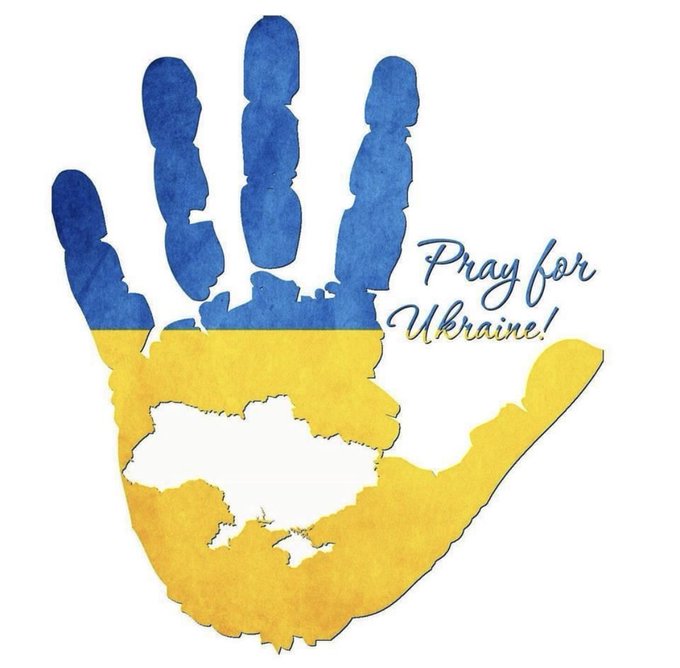
Dear Commons Community,
President Joe Biden today will nominate federal appeals court Judge Ketanji Brown Jackson to the US Supreme Court, the White House announced, making her the first Black woman selected to serve on the Court.
In Jackson, Biden delivers on a campaign promise to make the historic appointment and to further diversify a court that was made up entirely of white men for almost two centuries. He has chosen an attorney who would be the high court’s first former public defender, though she also possesses the elite legal background of other justices.
Jackson would be the current court’s second Black justice — Justice Clarence Thomas, a conservative, is the other — and just the third in history.
Biden planned to introduce Jackson in remarks at the White House this afternoon, where Jackson was also expected to speak. As reported by the Associated Press.
Jackson would also be only the sixth woman to serve on the court, and her confirmation would mean that for the first time four women would sit together on the nine-member court.
The current court includes three women, one of whom is the court’s first Latina, Justice Sonia Sotomayor.
Jackson would join the liberal minority of a conservative-dominated court that is weighing cutbacks to abortion rights and will be considering ending affirmative action in college admissions and restricting voting rights efforts to increase minority representation.
Biden is filling the seat that will be vacated by Justice Stephen Breyer, 83, who is retiring at the end of the term this summer.
Jackson, 51, once worked as one of Breyer’s law clerks early in her legal career. She attended Harvard as an undergraduate and for law school, and served on the U.S. Sentencing Commission, the agency that develops federal sentencing policy, before becoming a federal judge in 2013.
Her nomination is subject to confirmation by the Senate, where Democrats hold the majority by a razor-thin 50-50 margin with Vice President Kamala Harris as the tie-breaker. Party leaders have promised swift but deliberate consideration of the president’s nominee.
The next justice will replace one of the more liberal justices, so she would not tip the balance of the court, which now leans 6-3 in favor of conservatives.
The news comes two years to the day after Biden, then struggling to capture the Democratic presidential nomination, first pledged in a South Carolina debate to nominate a Black woman to the high court if presented with a vacancy.
“Everyone should be represented,” Biden said. “We talked about the Supreme Court — I’m looking forward to making sure there’s a Black woman on the Supreme Court to make sure we in fact get everyone represented.”
Senate Judiciary Committee Chairman Dick Durbin said in a statement that the panel will “begin immediately” to move forward on the nomination and that Jackson is an “extraordinary nominee.” Senators have set a tentative goal of confirmation by April 8, when they leave for a two-week spring recess. Hearings could start as soon as mid-March.
That timeline could be complicated by a number of things, including the ongoing developments between Russia and Ukraine and the extended absence of Democratic Sen. Ben Ray Lujan of New Mexico, who suffered a stroke last month and is out for several weeks. Democrats would need Lujan’s vote to confirm Biden’s pick if no Republicans support her.
Once the nomination is sent to the Senate, it is up to the Senate Judiciary Committee to vet the nominee and hold confirmation hearings. After the committee approves a nomination, it goes to the Senate floor for a final vote.
The entire process passes through several time-consuming steps, including meetings with individual senators that are expected to begin next week. While Justice Amy Coney Barrett was confirmed just four weeks after she was nominated ahead of the 2020 election, the process usually takes several weeks longer than that.
Biden and Senate Democrats are hoping for a bipartisan vote on the nomination, but it’s unclear if they will be able to win over any GOP senators after three bitterly partisan confirmation battles under President Donald Trump. South Carolina Sen. Lindsey Graham, one of three Republicans who voted to confirm Jackson to the appeals court last year, had pushed Biden to nominate a different candidate from his home state, Judge J. Michelle Childs. He said earlier this month that his vote would be “very problematic” if it were anyone else, and he expressed disappointment in a tweet Friday that Biden had not nominated his preferred choice.
Senate Republican Leader Mitch McConnell said he looks forward to meeting with Jackson and “studying her record, legal views, and judicial philosophy.” But he also appeared to express skepticism, noting he voted against her a year ago.
Jackson was on the president’s short list as a potential nominee even before Breyer retired. Biden and his team spent weeks poring over her records, interviewing her friends and family and looking into her background.
Biden has said he was interested in selecting a nominee in the mold of Breyer who could be a persuasive force with fellow justices. Although Breyer’s votes tended to put him to the left of center on an increasingly conservative court, he frequently saw the gray in situations that colleagues were more likely to find black or white.
“With her exceptional qualifications and record of evenhandedness, Judge Ketanji Brown Jackson will be a Justice who will uphold the Constitution and protect the rights of all Americans, including the voiceless and vulnerable,” said Senate Majority Leader Chuck Schumer. “The historic nomination of Judge Jackson is an important step toward ensuring the Supreme Court reflects the nation as a whole.”
As part of his search process, Biden, a longtime chair of the Senate Judiciary Committee, also interviewed Childs and California Supreme Court Judge Leondra Kruger, according to a person familiar with the matter. He also consulted with a wide range of legal experts and lawmakers in both parties and delved deeply into the finalists’ legal writings before selecting Jackson for the post.
Jackson serves on the U.S. Court of Appeals for the District of Columbia Circuit, a position that Biden elevated her to last year from her previous job as a federal trial court judge. Three current justices — Thomas, Brett Kavanaugh and John Roberts, the chief justice — previously served on the same court.
On Friday morning ahead of the announcement, Jackson took part in scheduled arguments before the circuit court.
Jackson was confirmed to that post on a 53-44 Senate vote, winning the backing of three Republicans: Graham, Maine’s Susan Collins and Alaska’s Lisa Murkowski.
Graham, in a tweet, indicated displeasure with the nomination, saying, “I expect a respectful but interesting hearing in the Senate Judiciary Committee.”
Bipartisanship is important to Biden, who has often said he was reaching for GOP support as he closed in on a nominee. Another GOP connection: Jackson is related by marriage to former House Speaker Paul Ryan of Wisconsin.
In one of Jackson’s most high-profile decisions, as a trial court judge she ordered former White House Counsel Don McGahn to appear before Congress. That was a setback to former President Donald Trump’s efforts to keep his top aides from testifying. The case was appealed, and a deal was ultimately reached for McGahn’s testimony.
Another highly visible case that Jackson oversaw involved the online conspiracy theory “pizzagate,” which revolved around false internet rumors about prominent Democrats harboring child sex slaves at a Washington pizza restaurant. A North Carolina man showed up at the restaurant with an assault rifle and a revolver. Jackson called it “sheer luck” no one was injured and sentenced him to four years in prison.
Jackson has a considerably shorter record as an appeals court judge. She was part of a three-judge panel that ruled in December against Trump’s effort to shield documents from the House committee investigating the Jan. 6, 2021, insurrection at the U.S. Capitol.
Jackson was born in Washington, D.C., and grew up in Miami. She has said that her parents, Johnny and Ellery Brown, chose her name to express their pride in her family’s African ancestry. They asked an aunt who was in the Peace Corps in Africa at the time to send a list of African girls’ names and they picked Ketanji Onyika, which they were told meant “lovely one.”
Jackson traces her interest in the law to when she was in preschool and her father was in law school and they would sit together at the dining room table, she with coloring books and he with law books. Her father became an attorney for the county school board and her mom was a high school principal. She has a brother who is nine years younger who served in the Army, including in Iraq, and is now a lawyer.
Good pick and best of luck to Judge Jackson!
Tony












